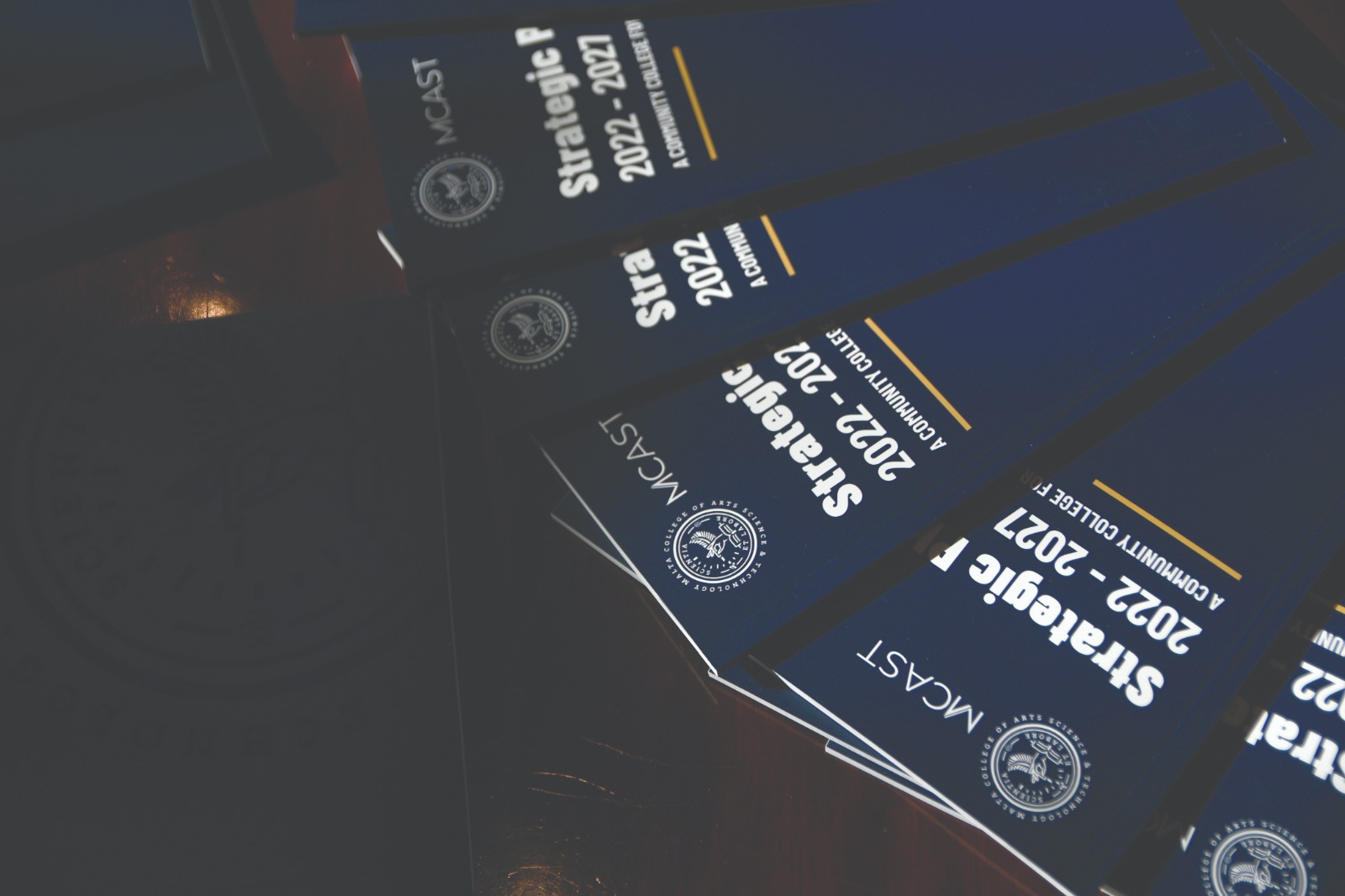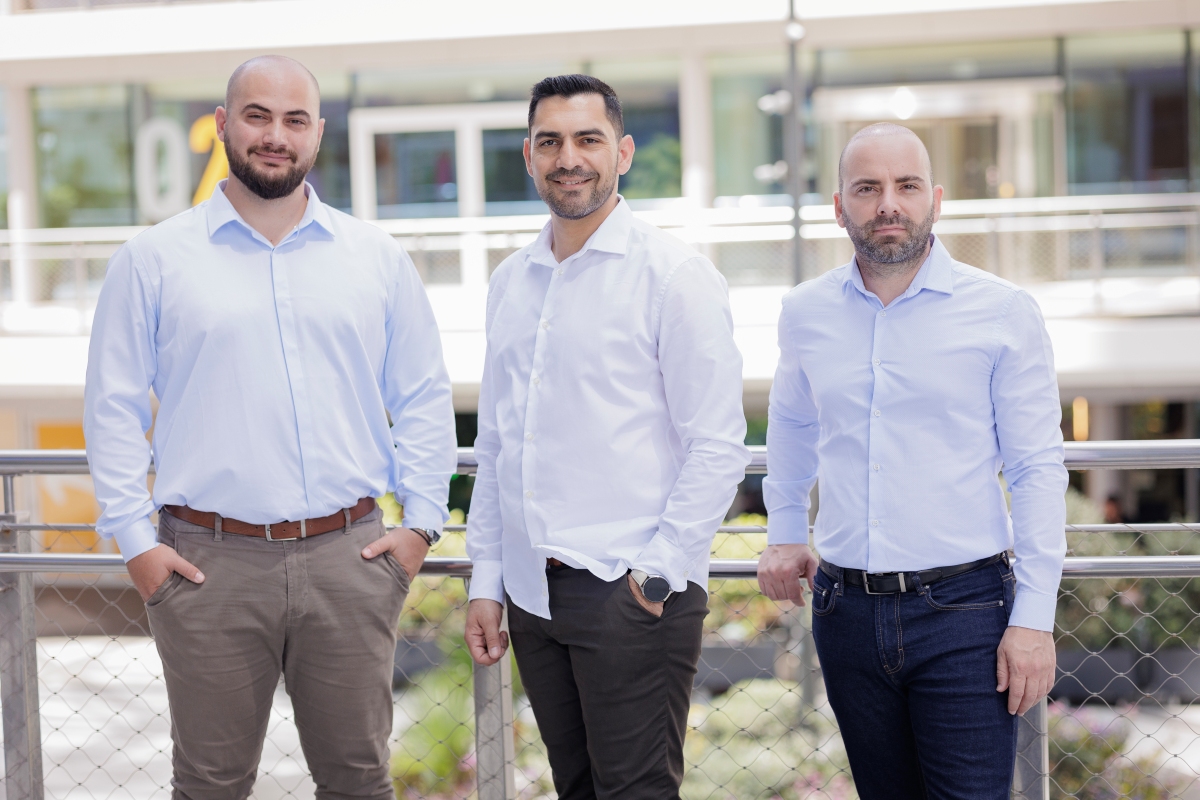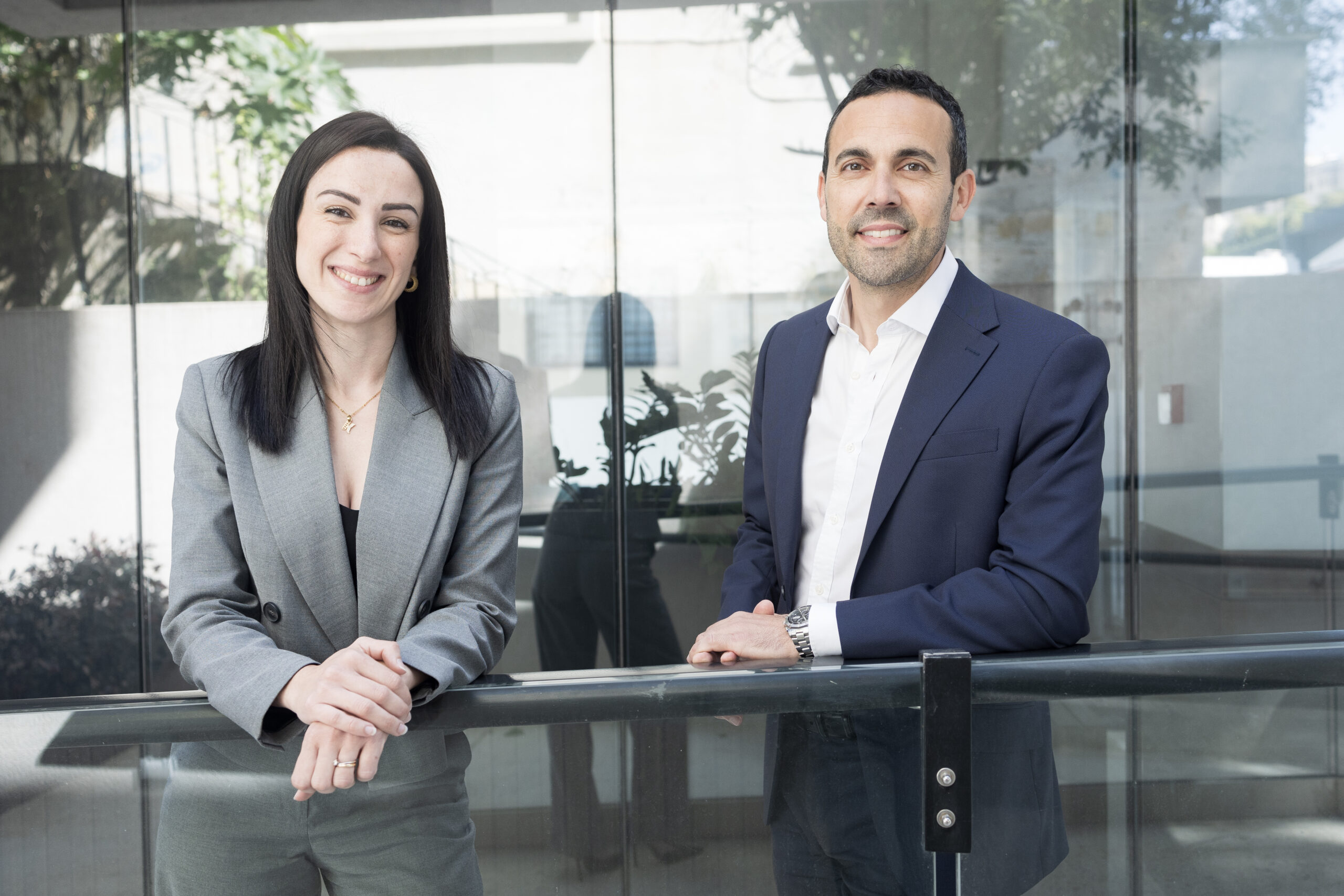The unexpected COVID pandemic has disrupted the workforce. It has brought about unanticipated and rapid changes to business models and consumer behaviour, with the ripple effect of these changes hitting the shores of education and training.
MCAST, the 21st century college born out of the needs of Malta’s economic growth in the late 20th century, is looking to withstand these challenges and is striving to continue with the provision of first-class qualifications, staying relevant in today’s labour market.
The future of work after the pandemic has been characterised by three trends, MCAST Principal and CEO Joachim James Calleja believes. These are smart working, smart mobility, and smart learning.
Smart working is all about both employer and employee being efficient remotely, saving energy, time and money. Smart mobility, due to the fact that there are oftentimes of late when travel is not possible, yet the same results still need to be yielded. Smart learning, meanwhile, is “something that we have experienced over the last year,” Prof. Calleja says, explaining, “teachers and students can vouch for it, as exams have been sat for and they have achieved their results. While there hasn’t yet been an overall comparison of the results from previous years, the experience was a positive one and now we know that it is achievable in future.”
Edel Cassar, Director of Strategy Implementation adds, “the challenge of vocational learning is not the academic aspect, but rather the practical one, which is where MCAST’s forte normally lies. The pandemic has presented the challenge that the students are unable to put what they have learned into practice.”
“The major negative impact is a lack of practical sessions in laboratories and workshops,” Prof. Calleja substantiates. “Young people are not going into workplaces, on work assignments, into offices to meet employers; the interactions which usually take place under normal circumstances.”
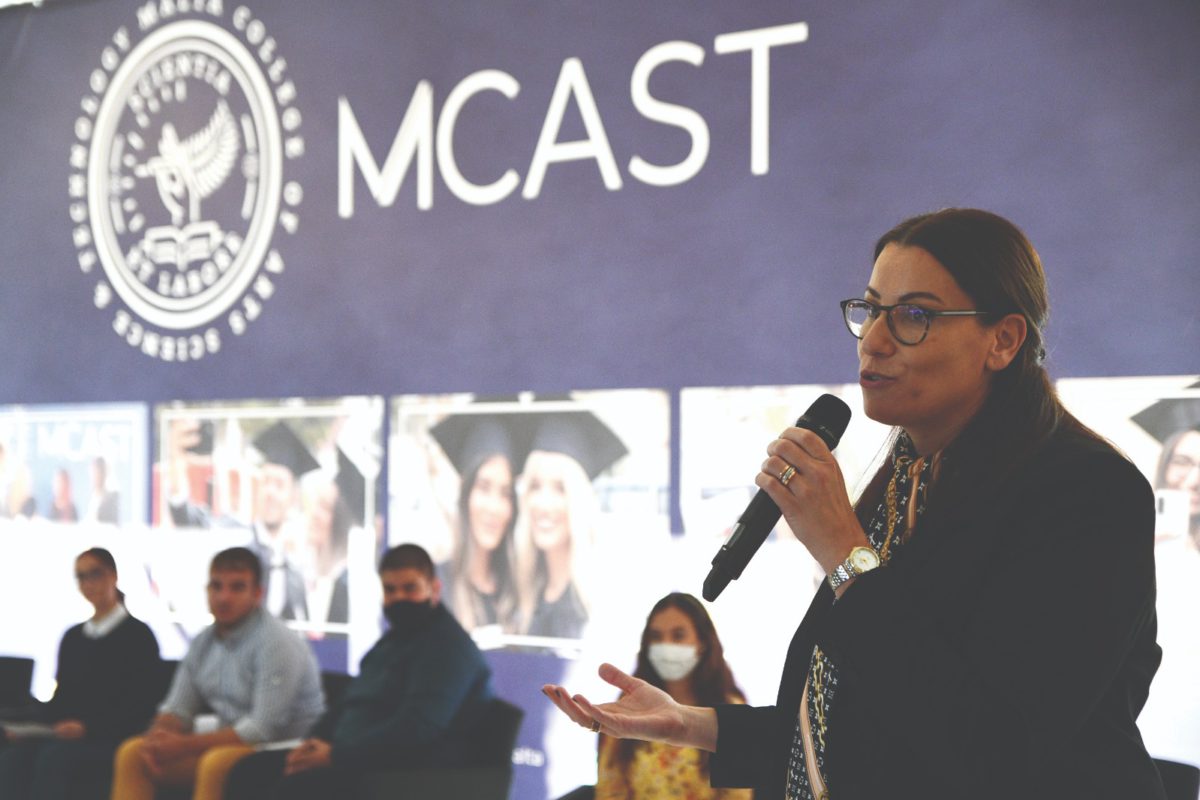
“On the other hand, one of the foremost positive impacts is the use of technology. We are investing in a big tech project so that if a similar situation continues to hinder physical interaction, we will be well equipped with a campus where you can learn remotely, wherever you are. It’s a substantial investment so it’s not something that will happen overnight. Vocational education is not easily changed into a tech[1]based learning process because of the very nature of it.”
Where does MCAST currently sit? The snapshot caught by an anonymous survey conducted earlier this year across the college summing up its state-of-play looks bright. According to the findings, 84 per cent of lecturing staff stated that they do not see themselves leaving MCAST; 91 per cent of administrative staff said that they would recommend MCAST as an employer; 77 per cent of students claimed that the course expectations are being met; while 83 per cent of students would recommend MCAST to their friends.
Reacting to this, Prof. Calleja says, “over the last decade, MCAST has seen rapid developments in its infrastructure, in the programmes that it delivers, in the quality of the staff that it recruits and in the positive appraisals it receives from employers and social partners.”
An initial Strategy Plan was produced for 2019-2021, which yielded successful results. From 2018 to 2020, the student population increased by 661, while apprenticeships increased from 879 to 1,673. Researchers shot up from a mere five to 96 over the course of these two years, while full-time staff increased by 254 educators. Further, the budget rose by €11,970,000.
Moreover, Prof. Calleja says, “when MCAST was hit by the challenges of a pandemic in 2020, the college’s response was immediate, focused and target-oriented. It delivered what it could have never imagined it would do, without any planning or history to rely on. Indeed, 2020 has forged a new era and character for the college.”
n response to the pandemic, MCAST drew its strength from its human resources, as well as from the technology that it had invested in over the years. Its outputs were met with a constructive response from society. Government was also quick to support its financial requests, and employers were rapid in pledging more work-based learning for the students. The added apprenticeships pledges by the end of 2020 amounted to over 600.
Prof. Calleja and Ms Cassar both strongly believe that if the college is going to remain truly relevant in vocational learning, heavy investment needs to be made in work-based learning.
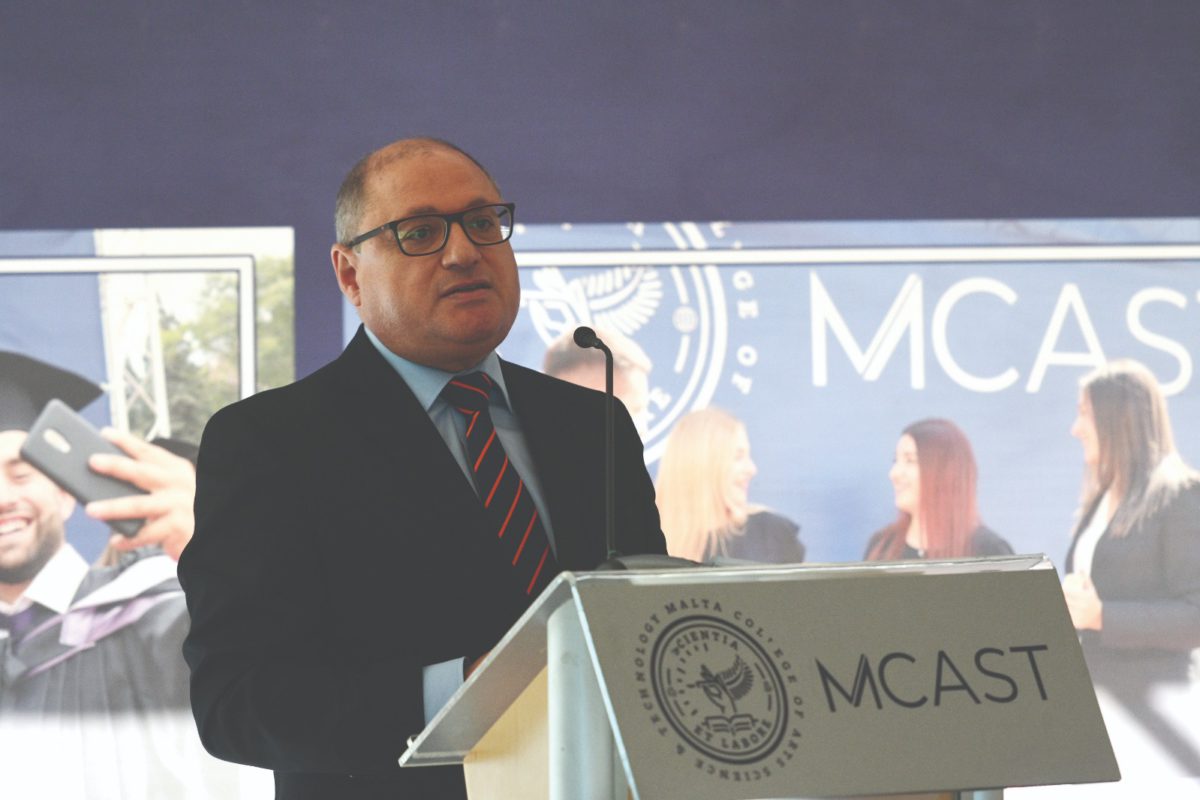
“Young people need to strike a balance between what the lecturer is speaking about and what the employer and employees are doing in places of work,” Prof. Calleja says. “If we manage to get more employers on board to share with us their new work practices and machinery, that’s how we can remain relevant to the labour market.”
Ms Cassar maintains, “it would be futile trying to replicate industry in all the vocational sectors, but we need to make sure that our students leave the campus and go out there to learn in different types of workplaces. Another aspect of that is to bring the employers onto campus as educators, which gives students the feel of the industry directly from those who are in it. Creating the physical structure to ensure that learning takes place in different forms so that it remains quality learning – this will be the true challenge and the only way the college will survive and remain relevant.”
Prof. Calleja adds, “we highly encourage employers to come onto campus as much as we can. For instance, we have a programme whereby the Heating, Ventilation and Air-conditioning sector came together to bring state-of-the-art equipment on campus for the students to learn from, as well as 25 apprenticeship programmes. This is what attracts young people. These are the kinds of incentives young people need to come to college and learn before going out into the world.”
“Learning with the latest equipment ensures that what the students are learning is relevant and that they are not studying dated technology, which they will never see outside of the college. These are machines that they will work with when they are in employment, and they will know because they have been granted the insight. This is the direction we are striving to keep going in,” Ms Cassar says.
In the post-COVID-19 period, the college, together with the active involvement and contribution of internal and external stakeholders, has devised the extensive Strategic Plan 2022-2027. The expectation of the plan is for the college to open its doors even wider to the community. This will include closer cooperation with public and private entities in order to build a more dynamic workforce system, and with the individual citizen so as to encourage a more structured use of its resources while empowering active citizenship and lifelong learning.
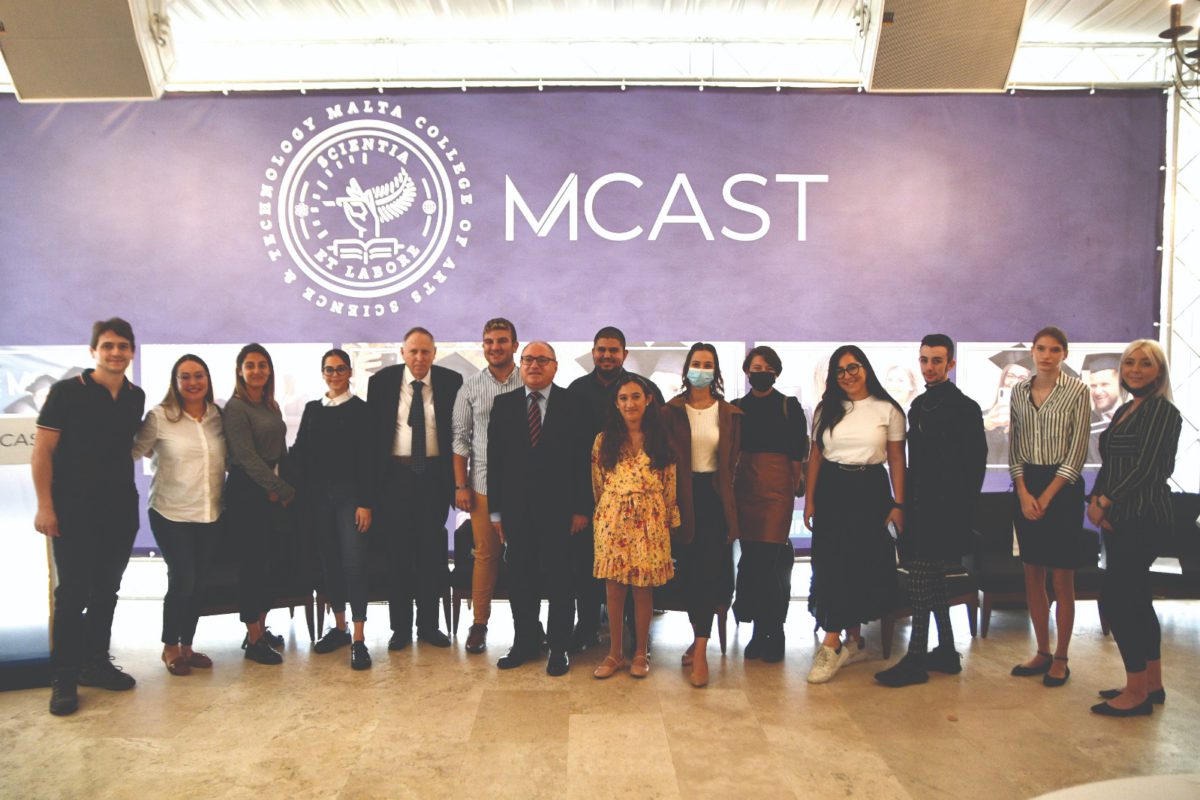
Prof. Calleja says, “MCAST must move towards the type of educational institution known as a community college. In one very brief sentence, the overall vision at the end of this six-year plan is to create a community college that serves learners of all ages.”
This may mean different things in different contexts. For MCAST, it will simply make the college available to institutionalised and individual needs and aspirations. The college will increase its role in helping learners in skilling, reskilling and upskilling.
The economic uncertainty created by the pandemic will encourage more people and organisations to reset their priorities and their education and training. MCAST’s vision is to be the college that will integrate learning with working in an even stronger manner.
“Online learning, hybrid courses, virtual mentoring and other forms of remote access will be supported when and if necessary,” says Prof. Calleja. “Being a community college will mean that learners will consider MCAST not as an institution in which one can enrol for two, four or more years, but as a place where one can continue learning throughout their career. Every qualification offered by MCAST Community College will continue to have labour market value, and learning in industry will also be convertible into college credits. As learning is taking place everywhere and anytime, informal, and non-formal acquisition of skills and competencies will carry an academic value.”
The vision of MCAST as a community college also includes the assurance that all barriers to learning are removed, with student support and community outreach services increasing and becoming more personalised. The goal is that the links with the community will be richer, continuous, and more meaningful and relevant.
Two of the most recent success stories of the college have been the attraction of international students and wider research activities in areas related to vocational and professional education and training. Part of the plan is to reinforce these two strategic goals in order to open up the college to a larger cohort of international students, as well as to create a gateway for local students to gain experience internationally.
According to Prof. Calleja, governance has had challenges that strengthened its role at the college. He elaborates, “this implies that it needs to be further prescribed so that the two distinct layers of governance and management truly represent their role and objectives. The new legislation for MCAST will shape this distinction even further, but the years 2022-2027 will certainly be used to synergise a more constructive and positive relationship between the two vital instruments of development.”
Without doubt, the next six years at MCAST will lay the structure and identify the resources to sustain an open community of learners and workers that will help make Malta more competitive, sustainable, and greener. Prof. Calleja adds, “an increase in our predictive capacity will be instrumental in making our vision a reality. As a public-funded college, we will widen our doors to provide services to Government entities on a regular basis. Similarly, our initiative to attract industry on campus is yielding its dividends, but much more needs to be done to entice employers to invest directly in MCAST, increase apprenticeships and adopt more learners and lecturing staff in their day-to-day operations.”
The strategy plan 2027-2030 development process
The consultation process, which led to the development of this ambitious Strategic Plan, was extensive, with the active involvement and contribution of internal and external stakeholders. Apart from an initial draft document being available on the Government public consultation website and on the MCAST website for feedback and input, an online anonymous questionnaire was available for the submission of feedback. During this phase, MCAST undertook various initiatives to liaise with as many stakeholders as possible, including reaching out to the general public. In total, more than 1,720 persons provided feedback through nine different channels. All the feedback received was reviewed and consolidated in an updated draft Strategic Plan
This feature was first carried in the December edition of Business Now magazine, the sister brand to BusinessNow.mt, both produced by Content House Group
Malta’s next leap: Secured
How ESET delivers enterprise-grade security to meet Malta’s digital ambitions
Mastering the language of business: How BELS is crafting bespoke training for a dynamic economy
BELS Malta Director of Studies Arianna Muscat on how the language school helps companies equip their teams for success.
Built differently – CLA Malta offers custom solutions in a cookie-cutter landscape of tax advisory and business
Their client-centric philosophy extends far beyond conventional consultancy.


